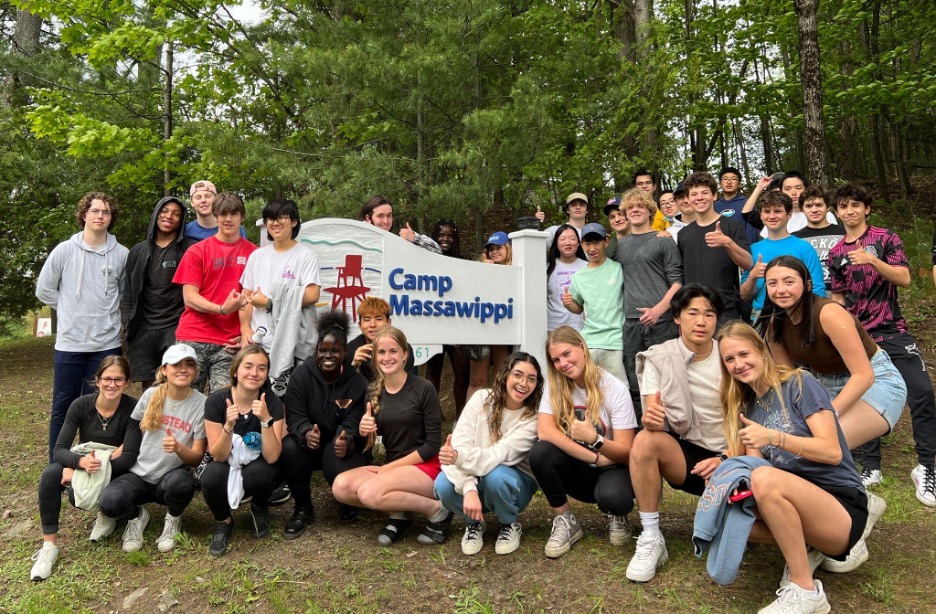From his office window, Nick Brien can see the daily hive of activity that is late spring at Camp Garagona in Frelighsburg. For more than 40 years, the camp has brought summer fun to children, teens and adults with autism or developmental disabilities. Executive director Brien (known as Yoda at camp) and his team are preparing for the first “normal” summer since the beginning of the COVID-19 pandemic.
Organizations which advocate for accessible camps, including the provincewide Association québécoise pour le loisir des personnes handicapées (AQLPH), have been sounding the alarm for weeks about the effect that the ongoing labour shortage may have on the availability of spaces in camp. “We do have some service interruptions, because some camps are unable to take campers with disabilities because they can’t find enough assistants,” says AQLPH executive director Geneviève Bergeron. “Other camps have reduced capacity – they have the space for 100 children, for example, but they can only take 40. This problem is generalized throughout the province, just like the labour shortage.”
Camp Garagona has managed to keep its day camp and weekend respite services open and fully staffed, but Brien and his team did have difficulty recruiting staff for the sleep-away camp. “Many people will come for a shorter vacation because we had to close some camp sessions to give the staff that we did find some time off. No new campers will come to Garagona so that our existing campers and members have priority,” Brien says. Some staff will also have to get creative to ensure everything that needs to be done gets done – Brien has pencilled himself in for some shifts preparing meals in the kitchen.
At Camp Massawippi in Ayer’s Cliff, which caters to children and young adults with physical disabilities and vision or hearing impairments, some campers need one-to-one assistance with daily tasks, which makes it imperative to recruit and train sufficient staff. Executive director Clea Corman and her staff have also had to get creative. “We have had to increase salary scales and think out of the box in terms of benefits and perks, and our budget has increased significantly…but we’ve done what we had to do in order not to cancel the stays of any campers [and] not pass the increased costs onto the families,” she says. About a dozen positions, mainly counselors and cleaning staff, remain open as summer approaches; the camp has also planned a charity swim fundraiser in July to compensate for some of the increased costs.
Working at an adapted camp is “a great learning experience” for anyone interested in health and social services, adds Corman. “It changes career paths.” The experience for the campers, many of whom get to try activities like waterskiing and sailing for the first time, is also transformative. “In regular life, there are a lot of barriers [for people with physical disabilities, but there are no barriers at camp,” she says.
“It’s still summer camp”
The hiring difficulties have come as no surprise to Brien. He says finding counselors for the sleepaway camp has always been challenging. Counselors “jump into the shoes of a live-in caregiver,” working with campers from 7:30 in the morning until lights out and remaining on call if a camper needs assistance at night. It’s a big job that we’re asking young people to do.”
“We knew 2022 was going to be a hard year for hiring,” Brien says. “Demographically, 2022 has the largest number of retirees leaving the job market and the smallest number of young people entering. We’ve been preparing for that for the last five years, and that’s independent of COVID or inflation or anything else.” With camps around the province trying to recruit from the same cohort of people in their late teens and early 20s, Brien says it’s no wonder that finding staff has become more difficult.
Like Camp Massawippi, Camp Garagona has managed to avoid cancelling any camper’s stay completely, although some stays have been shortened. After cancelling the sleepover camp completely in 2020 and running it at 20-30% capacity in 2021 due to public health measures, it is now expected to run at half capacity due to the staff shortage. Brien is determined to look on the bright side. “It’s still summer camp,” he says. “The connections that you make there are like few other connections that you make in your life. It’s a joyful, wonderful place. We’re going to sing, we’re going to dance. It’s going to be a little calmer, but it’s going to be great.”
Staff and volunteer groundskeepers at Camp Massawippi, a bilingual sleepaway camp for children and young adults with physical and sensory disabilities in Ayer’s Cliff, are busy preparing for an almost-normal summer.


